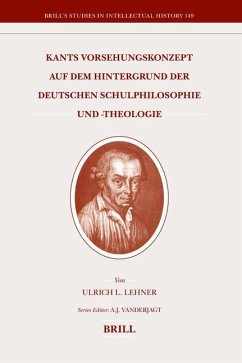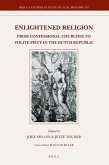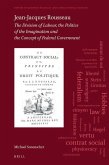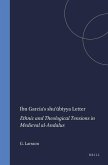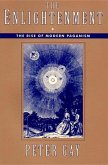It is widely agreed that Protestant scholasticism influenced Kant's thinking on the question of Divine Providence. But the nature and extent of that influence have never been explored in detail. This is the scholarly lacuna the present volume seeks to fill. It shows how Kant, from his pre-Critical period onward, grappled with the concept of Divine Providence, sought to subjectivize and naturalize it, and how Protestant scholasticism played an important role, both positive and negative, in this endeavor. It also makes clear how this critical philosophical conversation gave rise to a powerful notion of the progress of the human species - a vital part of the Enlightenment's enduring legacy. This study thus provides not only a unique theological-philosophical overview of 18th-century speculation on the question of Divine Providence; it also sheds important new light on the significance of the German Enlightenment.
Hinweis: Dieser Artikel kann nur an eine deutsche Lieferadresse ausgeliefert werden.
Hinweis: Dieser Artikel kann nur an eine deutsche Lieferadresse ausgeliefert werden.
"Ulrich Lehner has written an encyclopedic, learned, and provocative piece" - Andrew Chignell, in: Journal of the Philosophy of History 6 (2012) 143-147
"Quiconque voudrait désormais étudier la compréhension moderne de l'histoire, du progrès et de la religion nuirait à la précision de son propos s'il s'exemptait de la lecture de Kants Vorsehungskonzept. On relèvera enfin à ce livre le trop rare mérite d'avoir concilié avec une grande compétence l'étude des approches à la fois philosophiques et théologiques." - Fr. Charles Moreroit, in: Nova et Vetera 136 (2011) 4, pp. 501-503
"Kants Vorsehungskonzept is doubly illuminating - both about Kant and about those who preceded and, in various ways, influenced him. But the clear, detailed accounts of pre-Kantian philosophical and theological argument and debate may prove, for many readers, the most valuable parts of the book; these shed stunning: new light on the complexities of pre-Kantian scholasticism, allowing us to appreciate anew Kant's later radical transformation of the options this scholasticism had seen as the only ones available to rational thought." - Ronald K. Tacelli, in: Review of Metaphysics March (2009), pp. 672-673
'Lehners Studie leistet nicht nur einen herausragenden Klärungsbeitrag zu Prämissen und Entwicklungslinien der Kantischen Vorsehungstheorie. Allgemeiner ist sie auch lesbar als solider Kompass für jeden, der sich werkgeschichtlich wie systematisch über Kontinuitäten und Brüche in Kants philosophisch-theologischer Denkentwicklung orientieren will.' - Wolfgang M. Schröder, in: Zeitschrift für philosophische Forschung Volume 64, 2 (2010), 280-281
"Lehner's book [provides] such a detailed analysis of the historical context of Kant's thought on providence, will prove to be an indispensible resource to anyone interested in the pre-Kantian philosophical arguments and debates on divine providence, as well as on how both the pre-critical and critical Kant positioned himself in relation to them." - Jacqueline Mariña, in: Heythrop Journal Volume 52, 1 (2011), 148-149
'Lehner's extensive research fills a gap in a unique way. He enriches the study of Kant's philosophy in an as yet neglected field. His detailed research corrects many general judgements and invites to further studies. [...] It is the great merit of Lehner that he not only discusses providence in the thought of Kant and the context of German School Philosophy and Theology, but that he opens up the wide horizon in which the question of providence has to be posed anew.' - Hans Waldenfels, in: Journal compilation (2010)
"Ulrich Lehner si e proposto, come evidenzia il titolo, di mettere a fuoco la concezione kantiana di provvidenza, tenendo sullo sfondo la scolastica protestante tedesca, sia filosofica che teologica , in cui essa e maturata. Tuttavia, la trattazione delle diverse dottrine della provvidenza divina che costituiscono il contesto del pensiero kantiano al riguardo e svolta con grande profondita, tanto da poter essere considerata di fatto uno studio storico-concettuale a se stante." - Francisco Fernández Labastida, in: Acta Philosophica Vol. 19,1 (2010), 226-229
'The product of admirable learning and impeccable scholarship, L.'s book presents the material for much-needed clarifications about 18th century intellectual developments.' - Johannes Zachhuber, in: Theological Studies (2009)
"Der Kantforschung fehlte bislang eine allumfassende Monographie zum Vorsehungsbegriff, und zwar inklusive aller Quellen. Genau diese legte [Ulrich H. Lehner] vor." - Riccardo Pozzo, in: Kant-Studien 99. Jahrg. (2008)
"[...] in ihren Argumentationen und bibliographischen Informationen ausgezeichnete Studie [...] Die verschiedenen Bereiche der Realität, an die Kant herangegangen ist, zusammen mit der inneren Spannung der zwei Komponenten seiner transzendentalen Kritik - dem sensualistischen Intuitionismus und dem konstruktiven Idealismus -, zwangen Kant, seine Position jeweils zu differenzieren und zu modifizieren. Dafür bietet die vorliegende Studie dem Leser eine verlässliche Begleitung." - Giovanni B. Sala SJ, in: Philosophisches Jahrbuch 115. Jahrg. (2008 / II)
"Il testo di Ulrich L. Lehner traccia un interessante ed utile percorso attraverso le concezioni della provvidenza che, tanto sul versante squisitamente teologico, quanto su quello più schiettamente filosofico, attraversanoil '600 ed il '700, esercitando, a diverso titolo, la propria influenza sul pensiero e la produzione di Kant." - Gualtiero Lorini, in: Quaestio, 8 (2008), 707-712
'Ulrich Lehner's book shows once more that in the history of concepts things are more complex than textbook knowledge admits and that we know more clearly what we think after having taken a closer look into history. On reading this detailed and precise study the reader witnesses the origin of the concept of modern science from the point of view of the dissociation of theological from purely rational methods. [...] It will serve as a handbook of pre-Kantian philosophical theology.' - Paul Richard Blum, in: American Catholic Philosophical Quarterly
"Quiconque voudrait désormais étudier la compréhension moderne de l'histoire, du progrès et de la religion nuirait à la précision de son propos s'il s'exemptait de la lecture de Kants Vorsehungskonzept. On relèvera enfin à ce livre le trop rare mérite d'avoir concilié avec une grande compétence l'étude des approches à la fois philosophiques et théologiques." - Fr. Charles Moreroit, in: Nova et Vetera 136 (2011) 4, pp. 501-503
"Kants Vorsehungskonzept is doubly illuminating - both about Kant and about those who preceded and, in various ways, influenced him. But the clear, detailed accounts of pre-Kantian philosophical and theological argument and debate may prove, for many readers, the most valuable parts of the book; these shed stunning: new light on the complexities of pre-Kantian scholasticism, allowing us to appreciate anew Kant's later radical transformation of the options this scholasticism had seen as the only ones available to rational thought." - Ronald K. Tacelli, in: Review of Metaphysics March (2009), pp. 672-673
'Lehners Studie leistet nicht nur einen herausragenden Klärungsbeitrag zu Prämissen und Entwicklungslinien der Kantischen Vorsehungstheorie. Allgemeiner ist sie auch lesbar als solider Kompass für jeden, der sich werkgeschichtlich wie systematisch über Kontinuitäten und Brüche in Kants philosophisch-theologischer Denkentwicklung orientieren will.' - Wolfgang M. Schröder, in: Zeitschrift für philosophische Forschung Volume 64, 2 (2010), 280-281
"Lehner's book [provides] such a detailed analysis of the historical context of Kant's thought on providence, will prove to be an indispensible resource to anyone interested in the pre-Kantian philosophical arguments and debates on divine providence, as well as on how both the pre-critical and critical Kant positioned himself in relation to them." - Jacqueline Mariña, in: Heythrop Journal Volume 52, 1 (2011), 148-149
'Lehner's extensive research fills a gap in a unique way. He enriches the study of Kant's philosophy in an as yet neglected field. His detailed research corrects many general judgements and invites to further studies. [...] It is the great merit of Lehner that he not only discusses providence in the thought of Kant and the context of German School Philosophy and Theology, but that he opens up the wide horizon in which the question of providence has to be posed anew.' - Hans Waldenfels, in: Journal compilation (2010)
"Ulrich Lehner si e proposto, come evidenzia il titolo, di mettere a fuoco la concezione kantiana di provvidenza, tenendo sullo sfondo la scolastica protestante tedesca, sia filosofica che teologica , in cui essa e maturata. Tuttavia, la trattazione delle diverse dottrine della provvidenza divina che costituiscono il contesto del pensiero kantiano al riguardo e svolta con grande profondita, tanto da poter essere considerata di fatto uno studio storico-concettuale a se stante." - Francisco Fernández Labastida, in: Acta Philosophica Vol. 19,1 (2010), 226-229
'The product of admirable learning and impeccable scholarship, L.'s book presents the material for much-needed clarifications about 18th century intellectual developments.' - Johannes Zachhuber, in: Theological Studies (2009)
"Der Kantforschung fehlte bislang eine allumfassende Monographie zum Vorsehungsbegriff, und zwar inklusive aller Quellen. Genau diese legte [Ulrich H. Lehner] vor." - Riccardo Pozzo, in: Kant-Studien 99. Jahrg. (2008)
"[...] in ihren Argumentationen und bibliographischen Informationen ausgezeichnete Studie [...] Die verschiedenen Bereiche der Realität, an die Kant herangegangen ist, zusammen mit der inneren Spannung der zwei Komponenten seiner transzendentalen Kritik - dem sensualistischen Intuitionismus und dem konstruktiven Idealismus -, zwangen Kant, seine Position jeweils zu differenzieren und zu modifizieren. Dafür bietet die vorliegende Studie dem Leser eine verlässliche Begleitung." - Giovanni B. Sala SJ, in: Philosophisches Jahrbuch 115. Jahrg. (2008 / II)
"Il testo di Ulrich L. Lehner traccia un interessante ed utile percorso attraverso le concezioni della provvidenza che, tanto sul versante squisitamente teologico, quanto su quello più schiettamente filosofico, attraversanoil '600 ed il '700, esercitando, a diverso titolo, la propria influenza sul pensiero e la produzione di Kant." - Gualtiero Lorini, in: Quaestio, 8 (2008), 707-712
'Ulrich Lehner's book shows once more that in the history of concepts things are more complex than textbook knowledge admits and that we know more clearly what we think after having taken a closer look into history. On reading this detailed and precise study the reader witnesses the origin of the concept of modern science from the point of view of the dissociation of theological from purely rational methods. [...] It will serve as a handbook of pre-Kantian philosophical theology.' - Paul Richard Blum, in: American Catholic Philosophical Quarterly

